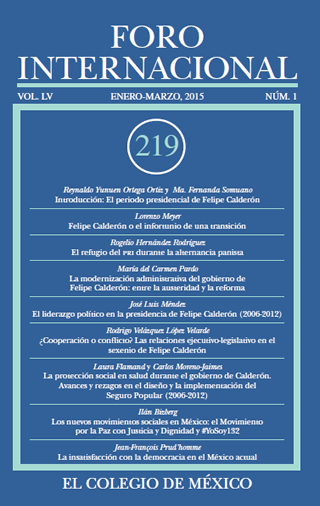Social Welfare and Health During the Calderón Government: Advances and Setbacks in the Design and Implementation of the Popular Health Insurance Program (2006-2012).
DOI:
https://doi.org/10.24201/fi.v55i1.2266Keywords:
Seguro Popular, Calderón, decentralization, health, MexicoAbstract
This paper examines the performance of the Popular Health Insurance program (Seguro Popular), focusing on the transformations and results achieved during the Calderón administration. Its most significant achievements include the level of coverage, with approximately 44 million people, and the fact that financial allocations to state governments no depend on the number of subscribers. This policy still faces complex challenges in order to provide effective health services of standardized quality in the 32 states of Mexico. Meanwhile, financial protection in health has not been achieved, since personal expenditure in Mexico remains high (44% of total health expenditure). We conclude with specific recommendations for strengthening government health services in the context of the potential universalization of the public health system.













